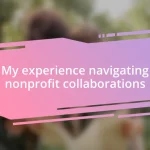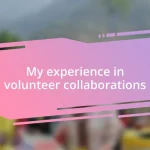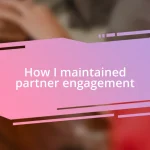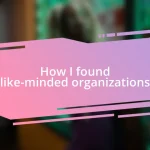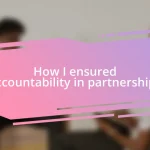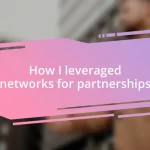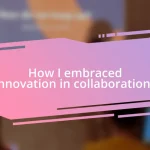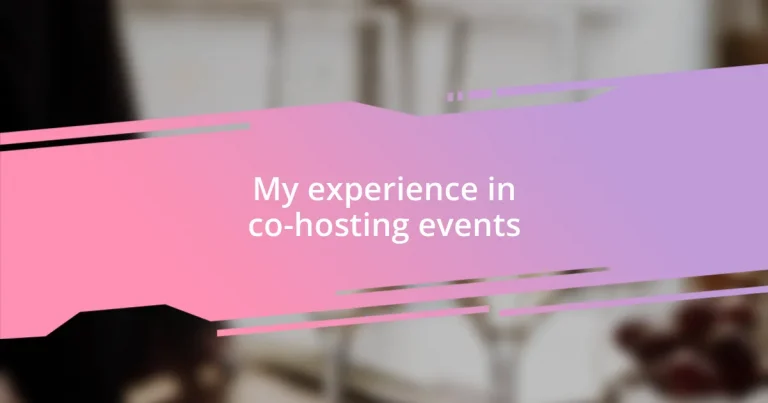Key takeaways:
- Successful events require thorough planning, audience understanding, and flexibility to adapt to unexpected situations.
- Effective communication among co-hosts is crucial for collaboration and managing logistics; using various channels enhances coordination.
- Engaging the audience with interactive elements and personal stories fosters genuine connections and enhances participation.
- Handling unexpected challenges with a calm demeanor and humor can turn potential issues into memorable, positive experiences.
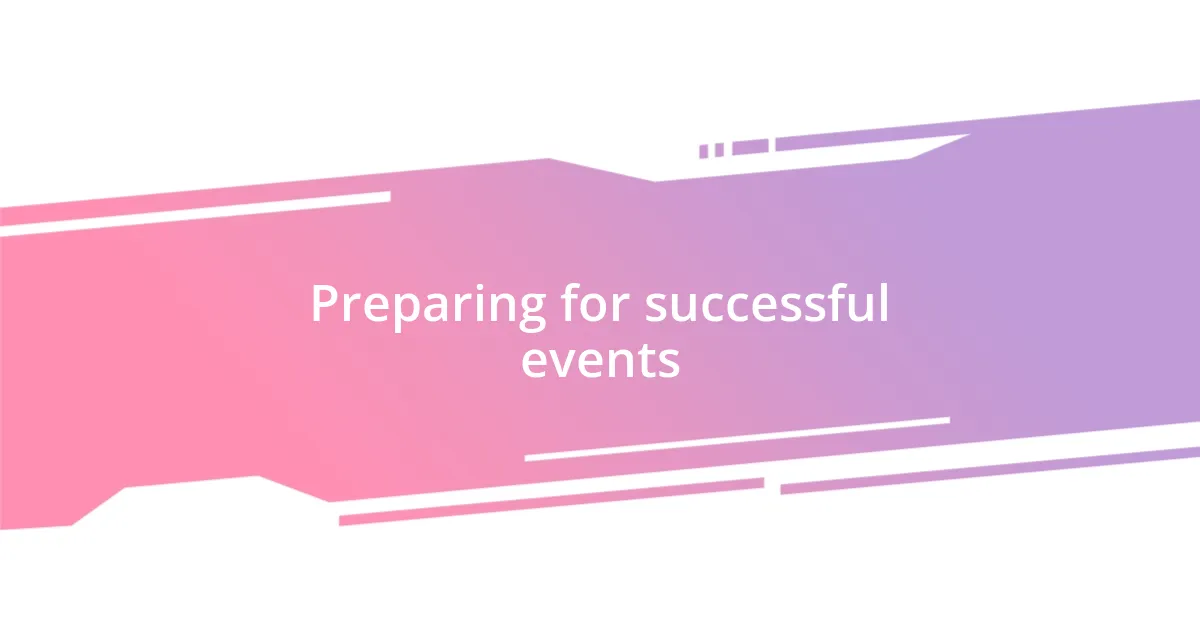
Preparing for successful events
Preparing for a successful event is a blend of meticulous planning and a dash of creativity. I remember hosting a charity gala where I spent countless hours coordinating with vendors, but the real magic happened when I allowed myself to be flexible in the moment. Did I expect everything to go perfectly? Not at all. Embracing the unexpected often leads to those memorable moments that attendees cherish.
One of the most important aspects of my preparation was knowing my audience. For instance, at a recent networking event, I tailored the activities to foster real connections rather than the usual small talk. I set up an icebreaker that encouraged participants to share their passion projects. The energy in the room shifted, as I saw people truly engaging with one another. Have you ever felt that electrifying connection ignite in a room? It’s a wonderful reminder of why we organize events in the first place.
I always make it a point to visualize the entire event before it unfolds. This mental rehearsal helps me identify potential challenges and solutions. For example, during one outdoor event, I imagined how attendees would navigate the space, which led me to set up clear signage to guide them. That foresight created a smoother experience and allowed everyone to focus on what really mattered: enjoying the event. How do you envision your events before they happen?
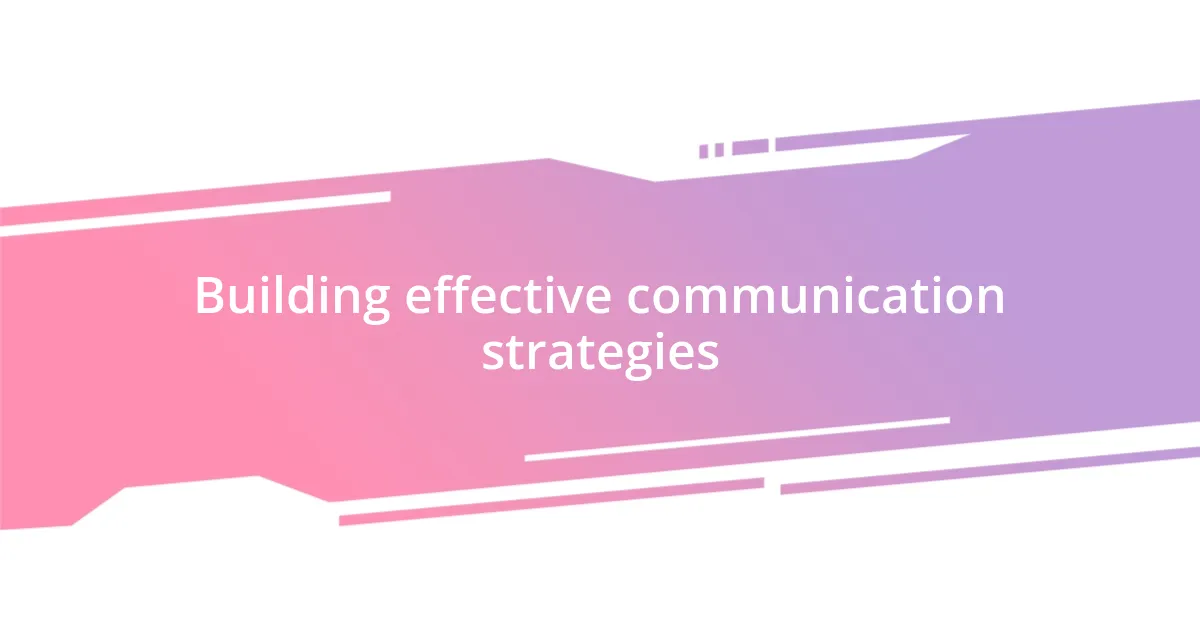
Building effective communication strategies
Building effective communication strategies is essential in co-hosting events. In my experience, clear communication fosters collaboration and reduces misunderstandings among team members. I recall a particular event where regular check-ins with my co-host ensured we were on the same page. This open dialogue allowed us to adapt swiftly to any changes, creating a more cohesive experience for our attendees.
When crafting a communication strategy, I believe it’s vital to leverage different channels. For instance, I often use a mix of group chats, email updates, and face-to-face meetings. This approach caters to diverse communication styles. During one event, by sending quick updates via a messaging app, we swiftly coordinated last-minute adjustments. It felt refreshing to see how well everyone adapted in real-time.
Moreover, I cannot stress enough the importance of feedback. After each event, I solicit input from both attendees and team members. This practice not only highlights areas for improvement but also strengthens relationships through the acknowledgment of diverse perspectives. At one gala, the feedback I received about my approach to conflict resolution taught me invaluable lessons for future collaborations.
| Communication Method | Benefits |
|---|---|
| Group Chat | Real-time updates, fosters quick decision-making. |
| Email Updates | Provides detailed information, serves as documentation. |
| Face-to-Face Meetings | Builds rapport, allows for in-depth discussions. |
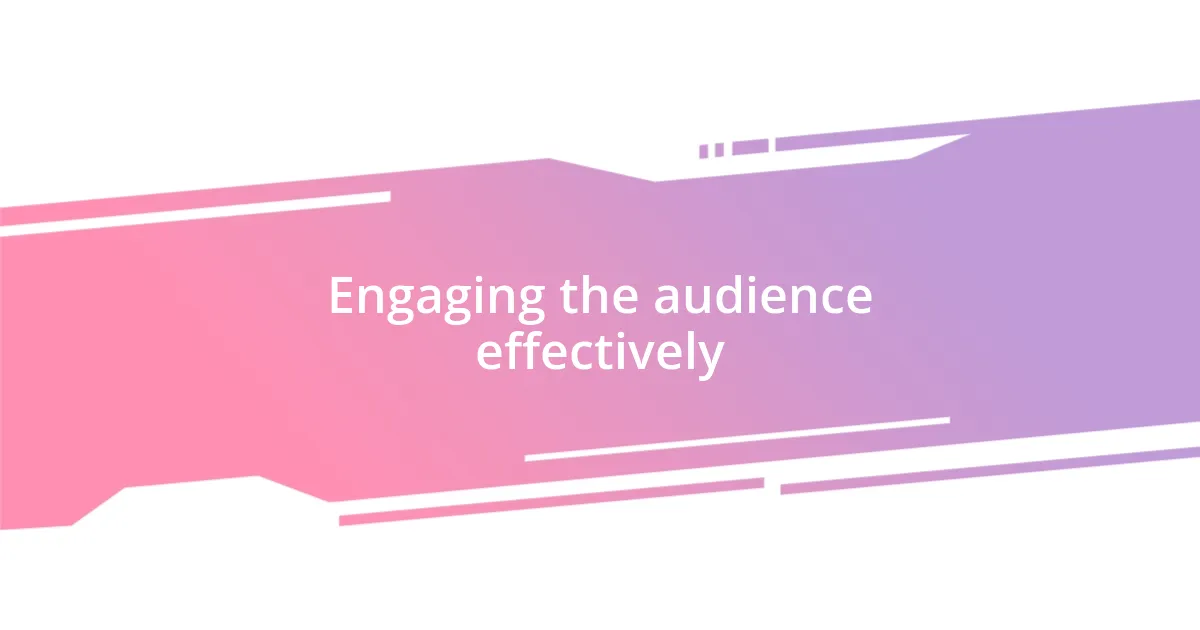
Engaging the audience effectively
Engaging your audience effectively is about creating an atmosphere that encourages participation. I remember one event where I introduced a spontaneous Q&A session. The energy shifted instantly as attendees felt inspired to share their opinions and questions. That unplanned moment fostered a sense of community among participants. It reminded me that sometimes the best experiences come from allowing space for genuine conversation.
To enhance audience engagement, I often focus on these key strategies:
- Interactive Elements: Incorporate polls or live feedback tools to involve the audience actively. This not only makes them feel valued but also increases their interest.
- Personal Stories: Sharing relevant personal anecdotes can connect with the audience on an emotional level, making the content relatable and memorable.
- Visual Aids: Use visuals that resonate with your topic; they catch attention and can support the message, making complex ideas more digestible.
- Engaging Openers: Start with a captivating question or surprising fact to grab attention and set the tone for discussion.
- Follow-Up Connections: Offer avenues for ongoing dialogue post-event, like social media groups or email newsletters, to keep the conversation alive.
These methods have transformed my events, turning passive observers into engaged participants. It’s incredibly fulfilling to see people light up as they connect with one another and the event itself.
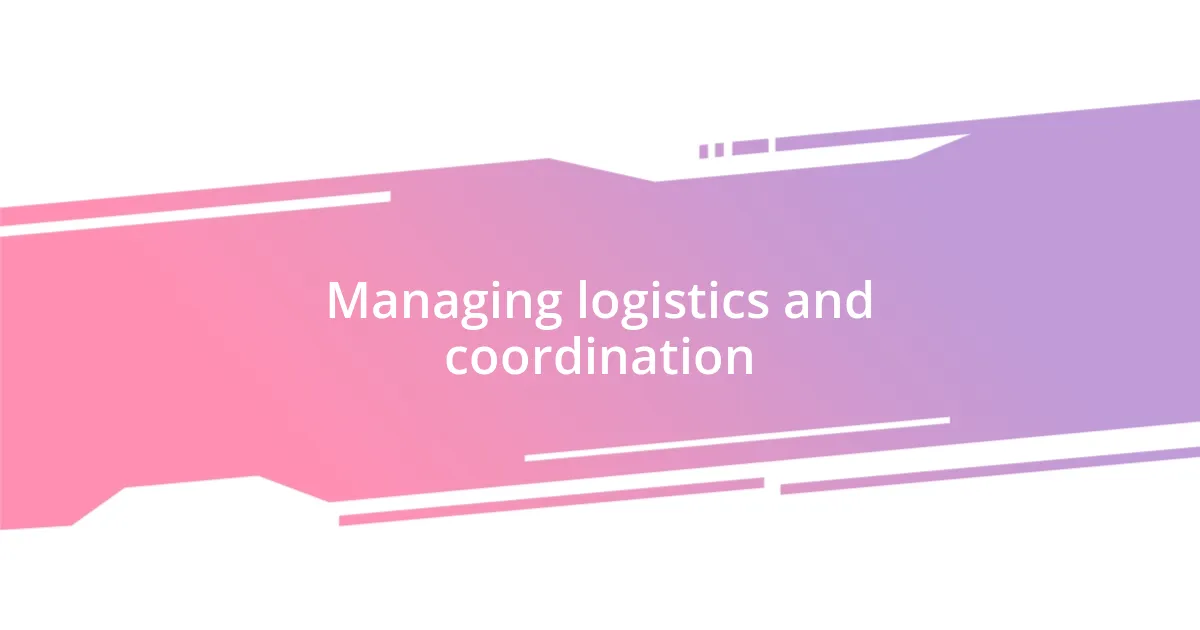
Managing logistics and coordination
Managing the logistics of an event can feel like weaving a tapestry; every thread must be meticulously placed to create a cohesive picture. I remember tackling a large-scale charity event where we had to coordinate multiple vendors, which involved juggling catering, sound systems, and decor, all while keeping the schedule on track. It was a whirlwind, but having a solid plan with clear timelines made it manageable and taught me that preparation truly is the backbone of successful events.
When it comes to coordination, I find that utilizing checklists is invaluable. For instance, during a community workshop, I used a detailed checklist to ensure everyone knew their responsibilities, from setting up the venue to handling registration. Seeing each task checked off in real time instilled confidence in the team and allowed us to celebrate our small victories together. Have you ever tried using checklists in your planning? I can’t emphasize enough how they keep stress at bay and foster a sense of accomplishment.
Moreover, I’ve learned that flexibility is crucial. There was a time when an unexpected downpour threatened to derail a beautifully planned outdoor event. Instead of panicking, we quickly pivoted and moved everything indoors. It’s moments like these when creative problem-solving shines. I truly believe that the ability to adapt in real-time can turn potential disasters into memorable experiences, ensuring that both attendees and hosts leave with a positive impression. How do you approach such unexpected challenges in your events? For me, it’s about maintaining a calm demeanor and rallying the team with a can-do spirit!
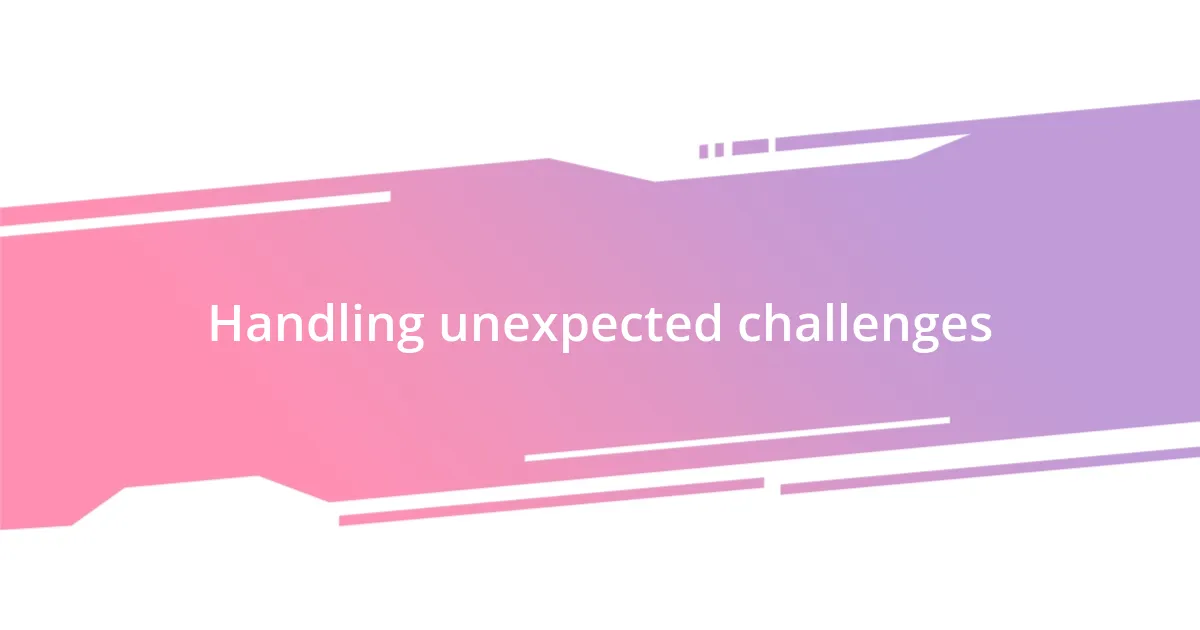
Handling unexpected challenges
Handling unexpected challenges during events is something every co-host must navigate with finesse. I recall a workshop where the main speaker fell ill just hours before the event. Panic could have easily set in, but instead, I stepped in to fill the gap. Drawing on my own experience and knowledge of the topic, I managed to keep the conversation flowing. This taught me that being prepared to take on different roles can have a profound impact during unforeseen circumstances.
Adapting to unexpected changes is essential. Once, a technical glitch halted our presentation mid-way, leaving everyone in an awkward silence. Instead of letting it derail the atmosphere, I turned the incident into an interactive discussion about the topic we were covering. Engaging the audience in such a way not only kept energy high but also created a collaborative spirit that led to some vibrant discussions. Have you ever been in a situation where a mishap turned into a unique opportunity? It’s incredible what can happen when you embrace the unexpected!
I’ve also found that maintaining a sense of humor goes a long way. I once experienced a charismatic entertainer who was running late for an event. To lighten the mood, I made a joke about my own dancing skills while we waited for the show to begin. Laughter was contagious, and it transformed any tension in the room into excitement instead. This reminded me that our attitude can set the tone for how challenges are perceived. How do you keep your audience engaged when things don’t go as planned? For me, it’s all about authenticity and staying true to the moment, even when things veer off course.

